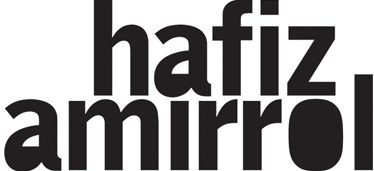This is a master plan proposal for the development of Maja Ecological Innovative Township in Tangerang, Indonesia – a development proposal initiated by the Ministry of Public Housing (KEMENPERA). We particularly to assist the consortia involved in the development of those schemes and provide more detailed information for the local government, which is charged with delivering the policy.
Eco-township is an urban center that is moving toward controlled and sustainable patterns of consumption and growth. It also mean that the development must contribute in the effort of reducing the ecological footprint while simultaneously improving the quality of life for our and future generations within the capacity limits of the township. Eco-towns should be places where it is easy for residents to adopt sustainable lifestyles. This means that the choices offered across all aspects of living and working need to be sustainable ones. Developers need to put in place the foundations to enable this. These will include energy efficient buildings, renewable energy, resource efficient infrastructure and proximity to employment and services. It should also include access to sustainable lifestyle options, services and information to make it the everyday ‘default’ for residents to choose a more sustainable way of living in the eco-town.
Sustainability is about more than resource efficiency: sustainable communities will be well designed and will foster social and economic sustainability. Often the issues are interwoven. For example, sustainable transport options such as cycling and walking reduce environmental impact but also bring benefits for personal health and well-being; walkable communities encourage social connection. It is vital that the eco-towns work well as places. This means in social and economic terms as well as environmental. Our aim is to provide a clear illustration of the core issues that will affect whether a proposal is good enough to be an eco-town, and the criteria against which this can be measured. The development will take on the design approach of integrated urbanism, which include the followings criteria checklist:
- Human and environmental health
- Economic vitality and individual prosperity
- Energy
- Housing
- Urban-rural linkages
- Mobility and access
- Education and culture
- Governance and civic engagement
- Water
- Materials and waste
The standards of the desired eco-township should meet include the following as set out in the draft Planning Policy Statement of Eco-Towns, developed by the Town and Country Planning Association and used internationally as the standard guideline in creating eco-townships:
- Affordable housing: a minimum of 30% affordable housing in each eco-towns.
- Zero-carbon: eco-towns must be zero-carbon over the course of a year (not including transport emissions).
- Green space: a minimum of 40% of eco-towns must be green space.
- Waste and recycling: eco-towns must have higher recycling rates and make use of waste in new ways.
- Homes: homes must reach Code for Sustainable Homes level 4 or higher.
- Employment: at least one job opportunity per house accessible by public transport, walking or cycling.
- Services: there must be shops and a primary school within easy walk of every single home, and all the services expected from a town of up to 20,000 homes.
- Transition/construction: facilities should be in place before and during construction.
- Public transport: real-time public transport information in every home, a public transport link within ten minutes walk of every home.
- Community: there must be a mixture of housing types and densities, and residents must have a say in how their town is run, by governance in new and innovative ways.
Design team: PT Studio Cilaki 45 (Regional and Town Planning), Antoni Ariadi (Master Plan), Toni Djuliantono (Master Plan and Transportation), Rampakasli (Master Plan and Urban Design), Isak Ariadhy (Master Plan, Feasibility Studies and Business Plan), Joko Subekti (Development Marketing and Business Plan), Toni Trigayana (Geologist), M. Arief (Detailed Engineering Design)







No comments:
Post a Comment